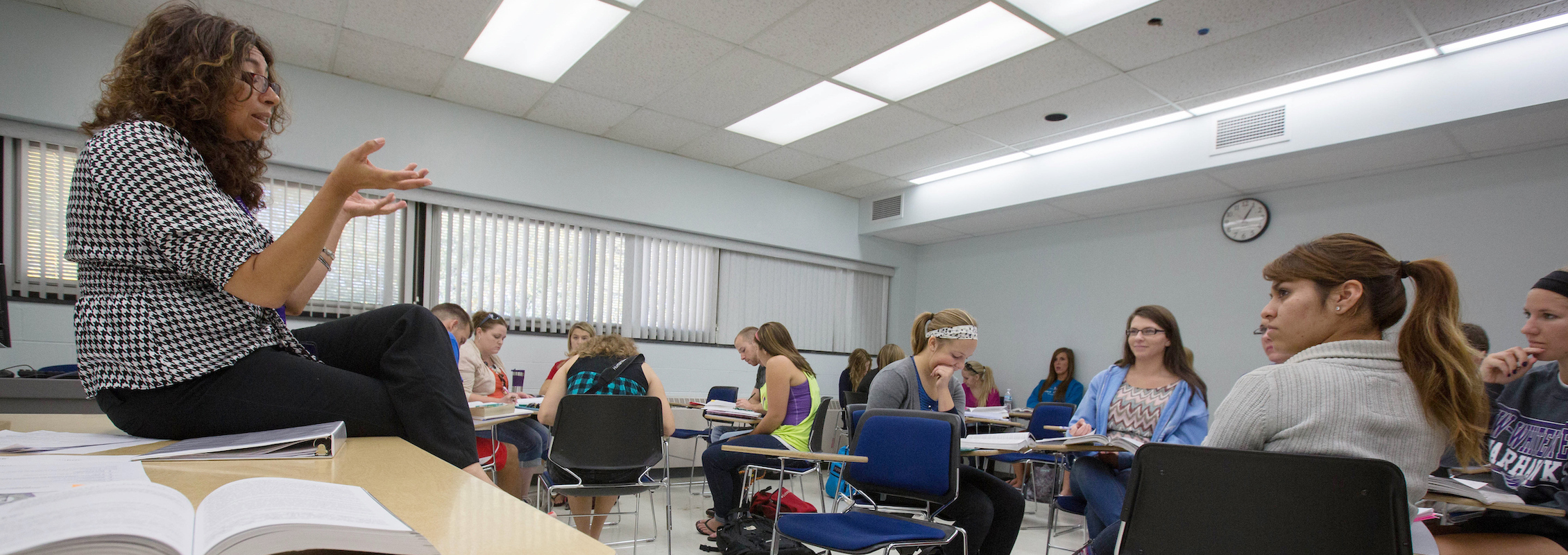Preparing for Hybrid and HyFlex Teaching
We know that hybrid teaching and learning is a hot topic in education as institutions nationally are working to bring their students back to campus as widely and as safely as possible. We recognize this is no easy task and understand that you may have some questions, as well as be interested in attending some instructional development opportunities to help you prepare for the fall semester.
What is hybrid teaching and learning?
Definitions of Hybrid learning vary but generally represent a structure that mixes online components into face-to-face teaching and learning, without being fully online (EDUCAUSE, 2020). The University of Central Florida defines it similarly in that “Blended courses (also known as hybrid or mixed-mode courses) are classes where a portion of the traditional face-to-face instruction is replaced by web-based online learning.”
What are the different types of hybrid teaching and learning?
As you can imagine, there are many ways to mix online and face-to-face components, which creates many variations of hybrid teaching and learning. Some of these include, but are not limited to:
- Alternate Day Hybrid Courses - Parts of the class attend on different days in safe numbers and asynchronous instruction replaces the “lost contact hours.”
- Modified Tutoring Structure - Instructors place their content online and have small groups of students sign up to meet in a classroom for things like assistance in solving problems and discussing case studies. Students can choose not to come if help is not needed (or attend virtual office hours).
- Asynchronous Hybrid Flex Structure - Instructors teach face-to-face for a “safe sized” group of students (either allow sign up or prioritize based upon need/preference). Additionally, instructors post equivalent asynchronous modules in Canvas for those who do not attend class synchronously face-to-face.
- Synchronous Hybrid Flex Structure - A safe portion of the class attends in person and the rest watch a live stream.
- HyFlex Course - You may have heard about a new format being considered for classes this Fall called the HyFlex (Hybrid Flexible) framework. In a nutshell, the HyFlex framework allows students to flexibly choose the format of their class participation. Students can choose to come to class, watch and participate live via Webex, or watch videos on their own time and then post responses.
-
Note: While HyFlex is the most flexible structure for students, it does have technology considerations to enable instructors to communicate to remote live students (note: not all classrooms have this capability) and implications for instructors related to course preparation (i.e., developing synchronous and asynchronous components that work together), course management (e.g., tracking student participation), and training (e.g., designing the course, facilitating face-to-face and remote groups at the same time, etc.).
-
What instructional development opportunities are available?
The LTC will be offering a summer flexible faculty development workshop series specifically on hybrid teaching and learning. The series is divided into three categories, Planning for Flexibility, Hybrid Face-to-Face and Online Assessment, and The Hybrid Class. These sessions focus on technology-mediated activity design and development to help you plan for the next academic year.
This summer workshop series also has a connected LTC Summer Hybrid Faculty Development Series Canvas course, with a variety of resources, which you will receive access to after you register for a session. For more information on this instructional development opportunity, please visit the
Summer Flexible Hybrid Faculty Development Workshop Series post on the LTC Blog.
If you are interested in learning more about the HyFlex framework, the Learning Technology Center is hosting introductory discussion sessions on HyFlex on the following dates and times:
- July 9th at 9:00 am (http://my.uww.edu/signup/Registration/Details/16488)
- July 23rd at 9:00 am (https://my.uww.edu/signup/Registration/Details/16489)
- August 6th at 9:00 am (https://my.uww.edu/signup/Registration/Details/16490)
Where can I learn more?
Throughout the summer we will be creating and cultivating more resources to support your hybrid course development. As we do, we will add them here so keep checking back!
Here are a couple to get started:
- COVID-19 Planning for Fall 2020: A Closer Look at Hybrid-Flexible Course Design
- Hybrid Learning Toolkit
- HyFlex Course Design
- San Francisco State HyFlex Discussion
- Sample Lesson Plan in the HyFlex Framework
Coming Soon: A Canvas course site with a variety of materials to support hybrid course development!


